Important:
Before beginning to install the ADR package, you must ensure that
all the latest operating system updates have been
applied.
License keys for the runtime component only are supplied separately from the software installation mechanism. You should make sure your license file is in a file that is available to the installation activation (unless you are going to use the software under a community edition agreement, without a license).
During the install you must identify the configuration file. Please refer to the section Installation Planning and Preparation for information on how to manage that part of the installation. The installation comprises the following steps;
Log into the Software AG Installer.
Select the installation directory location.
Select the product component(s) to be installed.
Confirm the Installer should proceed.
Execute the product activation step.
On the Software AG Installer Welcome Screen, click Next to start the installation.
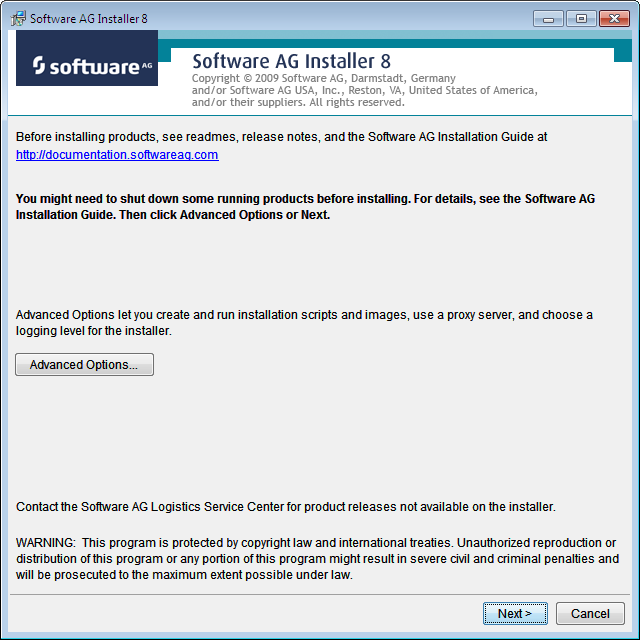
Identify yourself to the Installer by logging in with your credentials as shown below. Then click Next to proceed to the next step:
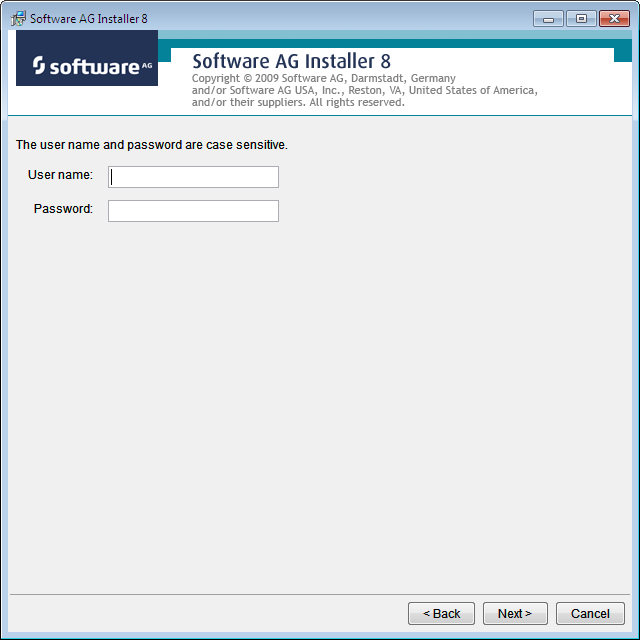
The Installer acquires information about a) all the products for which you are licensed and b) are able to be installed using the Installer. You can see this happening (below). It may take a few minutes:
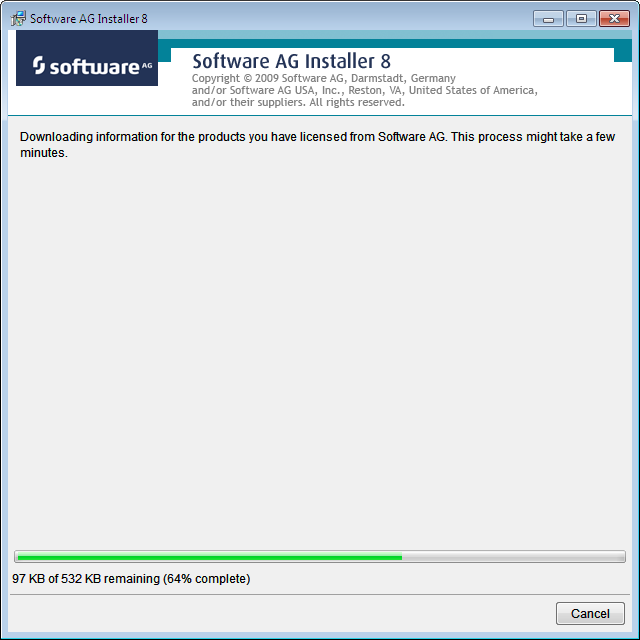
Once the Installer has acquired all licensing information for your site it shows the default install location. You can alter this if you wish but make sure you understand the implications of changing it for all the products being installed. Click Next to proceed:
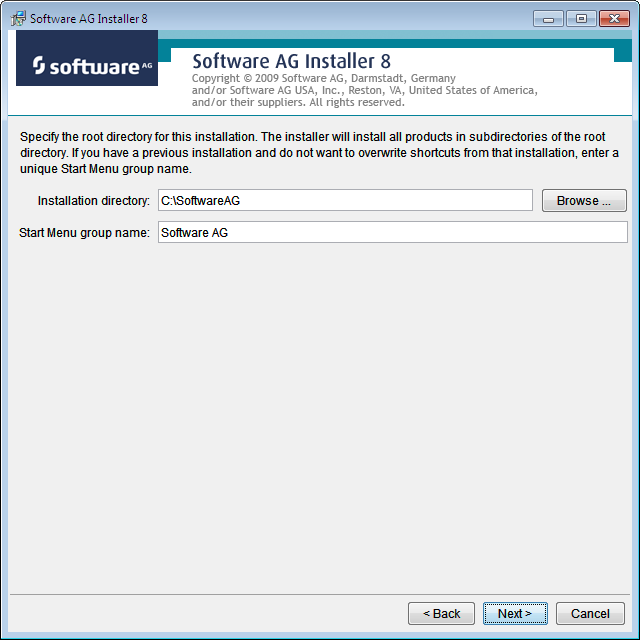
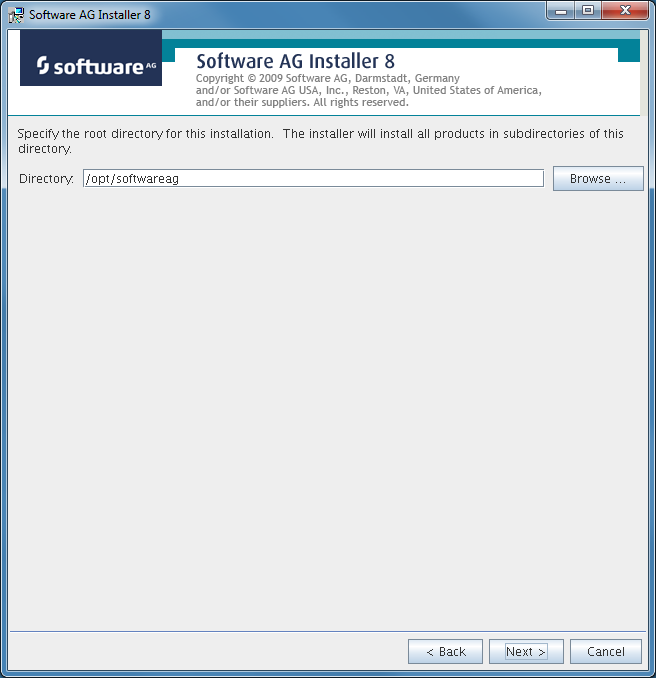
You can now choose the products that you wish to install:
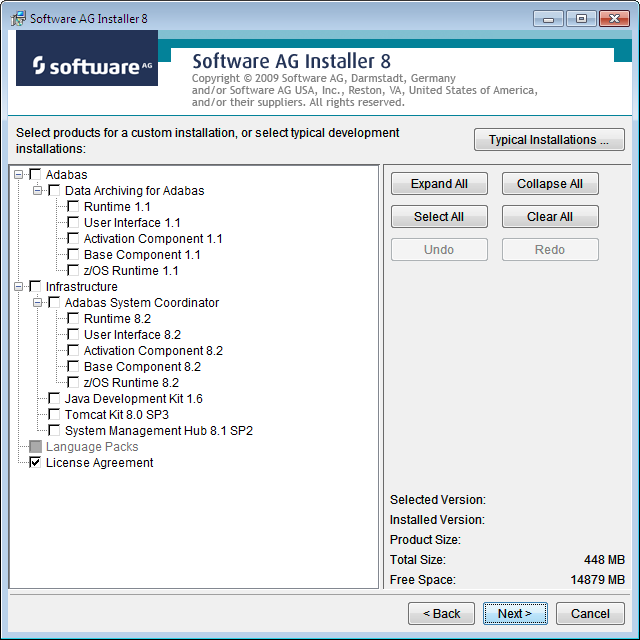
You can see below which products have been selected for install. In making these choices, other implied choices of sibling and prerequisite products are also made automatically. Once your selections are made, click Next to proceed:
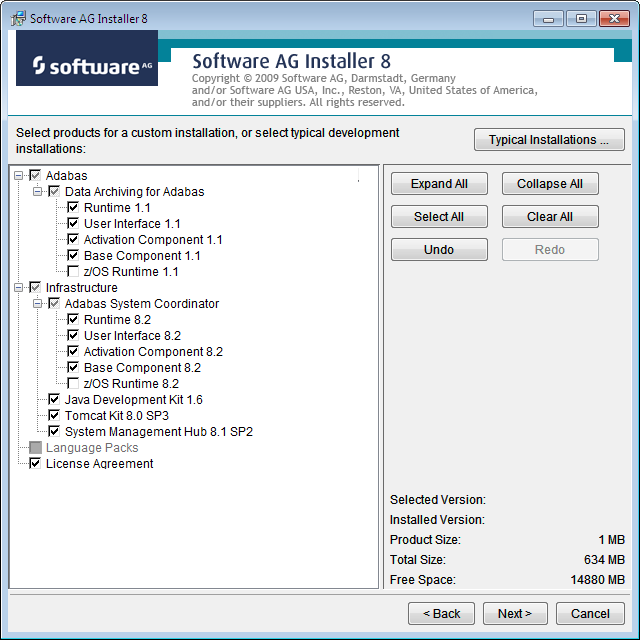
Read the terms and conditions. When you have finished confirm you have done so by checking the box. Then click Next to continue:
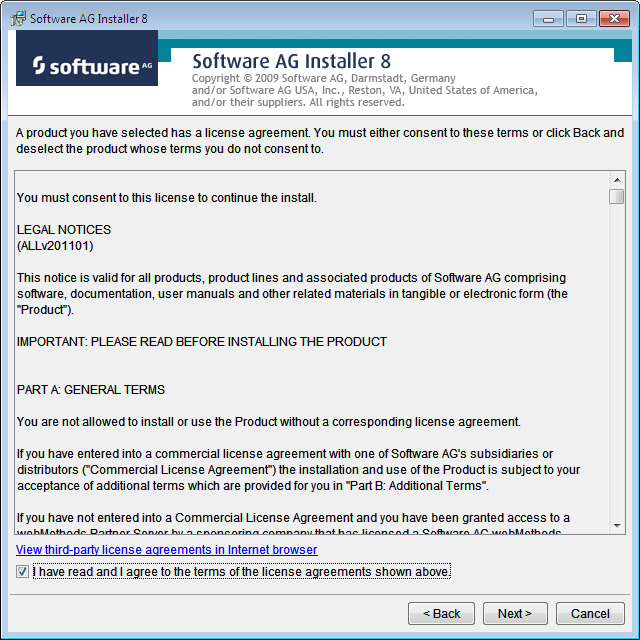
The following display is shown if the user interface is to be installed. This allows you to determine the install location for the prerequisite System Management Hub which you normally allow to default. Click Next to proceed to the next step:
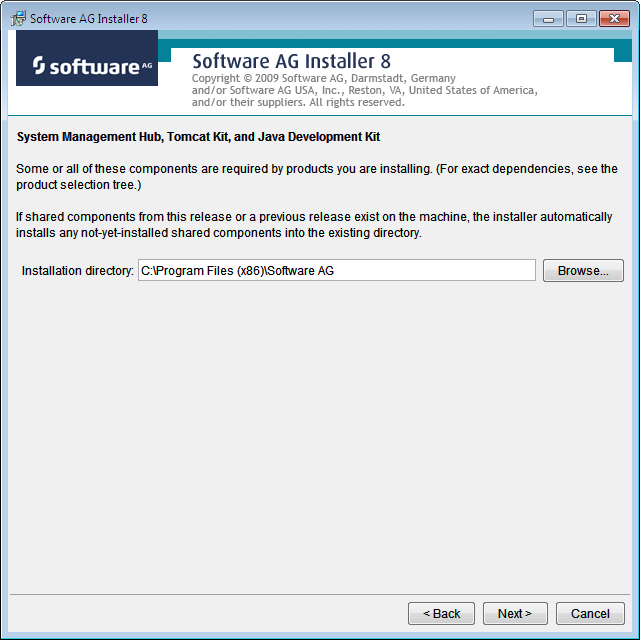
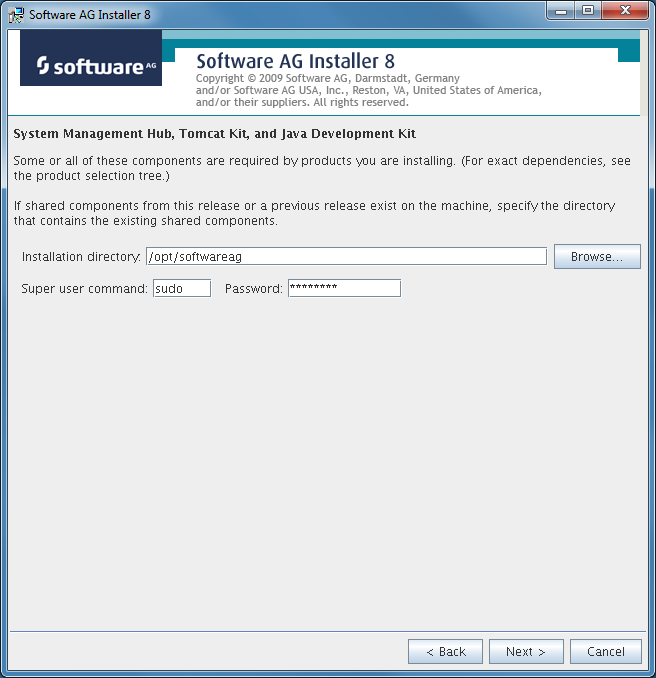
A list of the products selected for install is provided. Click Next to perform the installation:
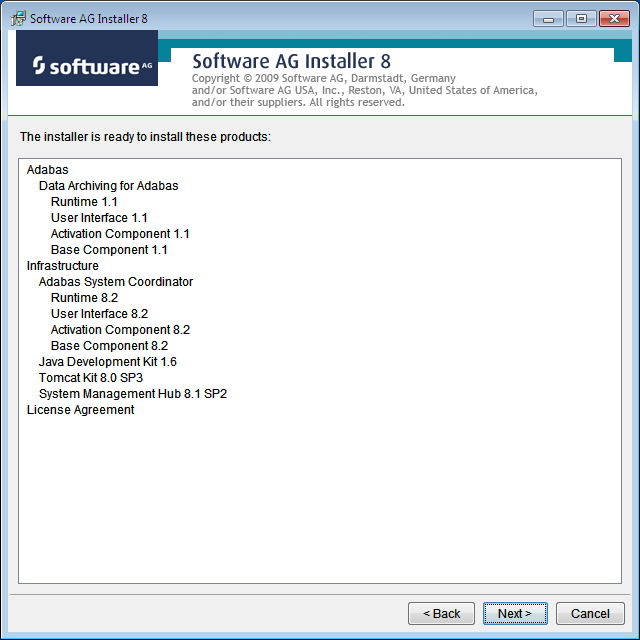
The installation may take some time. In the case of Data Archiving for Adabas the installation is usually quite quick whereas the install of the prerequisite System Management Hub (for installing the User Interface) takes longer.
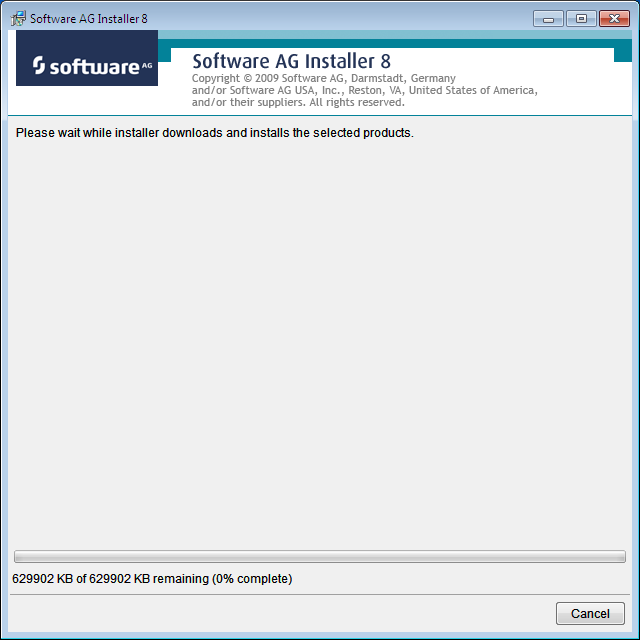
The section for installing the System Management Hub has several interaction screens where the defaults can be taken. If you wish to alter the defaults please consult the documentation for the System Management Hub to understand their meanings and implications. The screen below shows one of the many you will see for the System Management Hub installation:
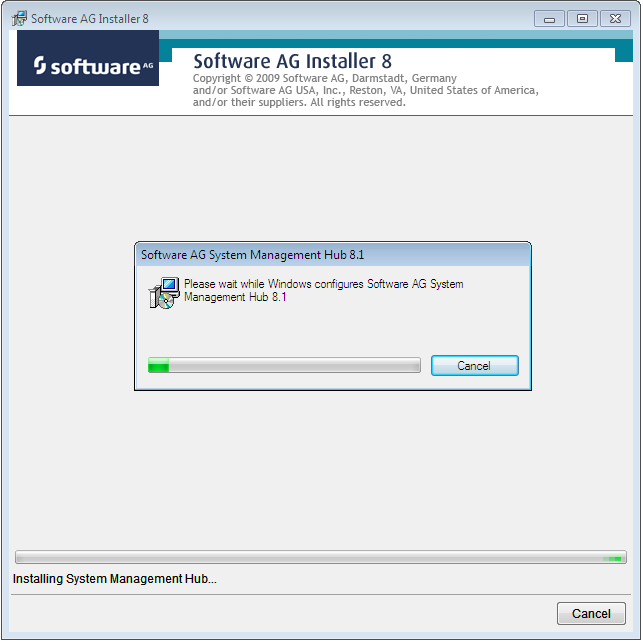
Once the installation of all the products is completed you will see the following confirmation screen:
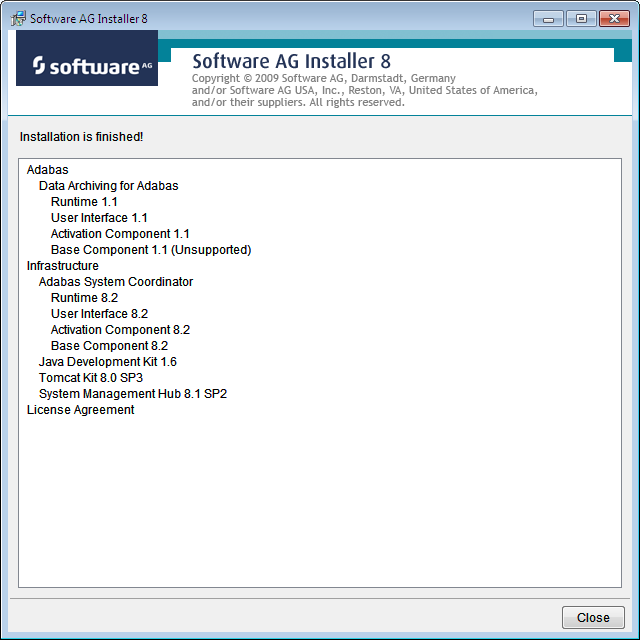
Once the Software AG Installer has prepared the install download image or you have copied the downloaded install image to the computer where the installation is required you must finally activate the software before it can be used.
Execute the activation script in the install directory as follows:
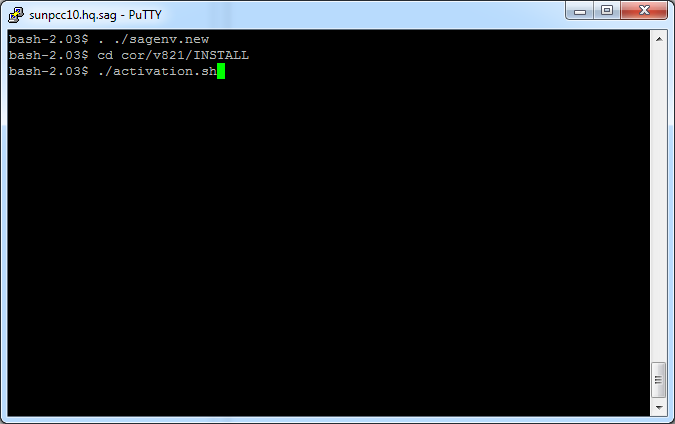
The Installer creates a Start menu entry for activation (and deactivation); execute it as follows:
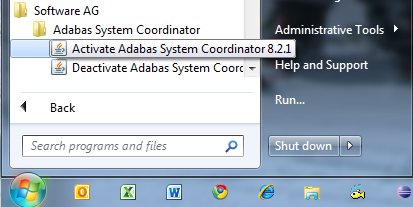
Note:
Windows Server 2008 R2 requires that you start the activation using
right-click and run as administrator.
The first tab in the activation requires that you select the platform that you are activating and the products too. The following is an example of Windows, Unix is similar:
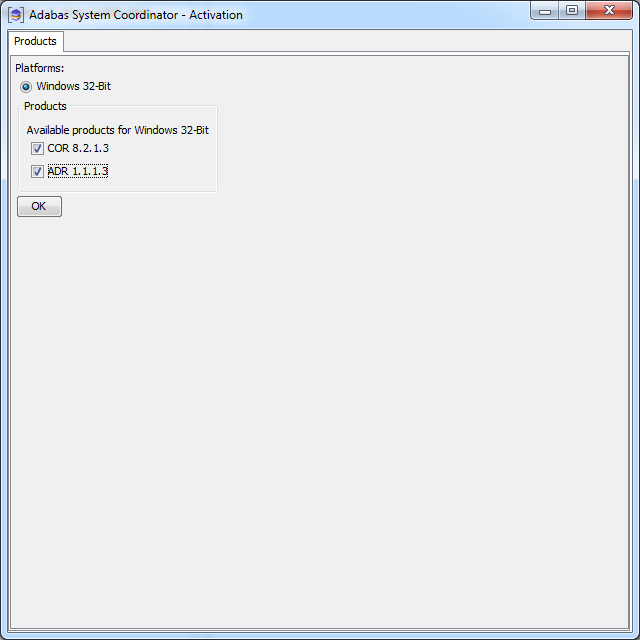
The COR tab requires the following information:
Ports: System Coordinator uses ports for communication between components. Normally Group Services Port, Dynamic port range (start) and Dynamic port range (end) are left with the default settings shown below. If you decide to change these ports you must keep a careful note of the port numbers chosen for this computer for use later.
Configuration file location: it is very important that the configuration file (and Adabas file) is shared by all computers that are to collaborate. You must identify where the configuration file already resides in another computer; or if this is the first installation you must be sure that this is the computer where the configuration file is to be created by the activation. If the configuration file does already exist in another computer you must identify it with hostname and group services port used in that computer (if group services port was not allowed to default). Finally, the database and file for the file is needed too of course.
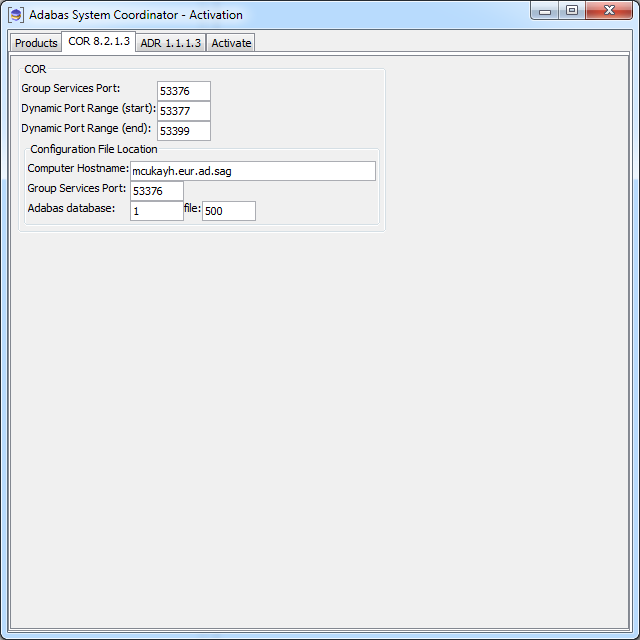
Licensing has to be identified in the Archiving tab. At the moment this is different for Unix and Windows because Unix does not yet have a community edition available. For Unix a runtime license is mandatory, the location of the license file must be identified here as follows:
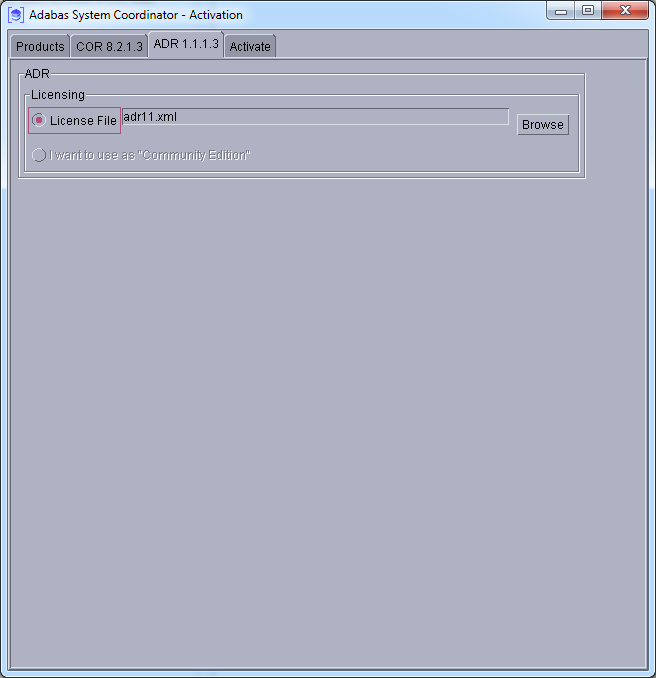
For Windows you can identify the license file location or you can use the software under a community edition agreement without a license. In community edition mode the capabilities of the software are limited. Choose as follows in Windows:
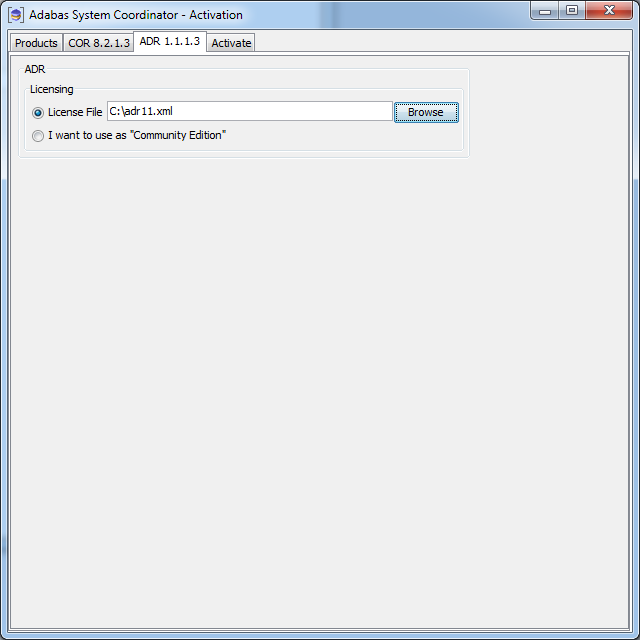
Once all options have been selected the activate tab shows the empty activation log screen. Start the activation by clicking the Activate button below.
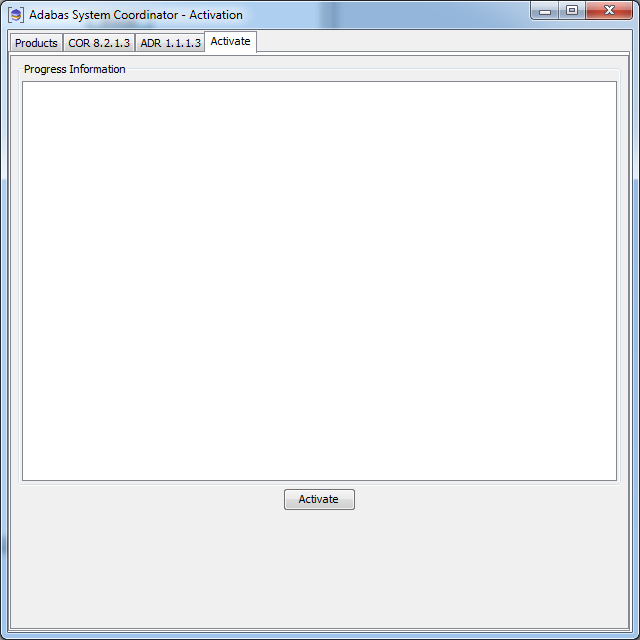
The activation log screen shows progress during execution which may contain important information is a problem occurs (such as permissions failure). Here is a successful activation execution completion:
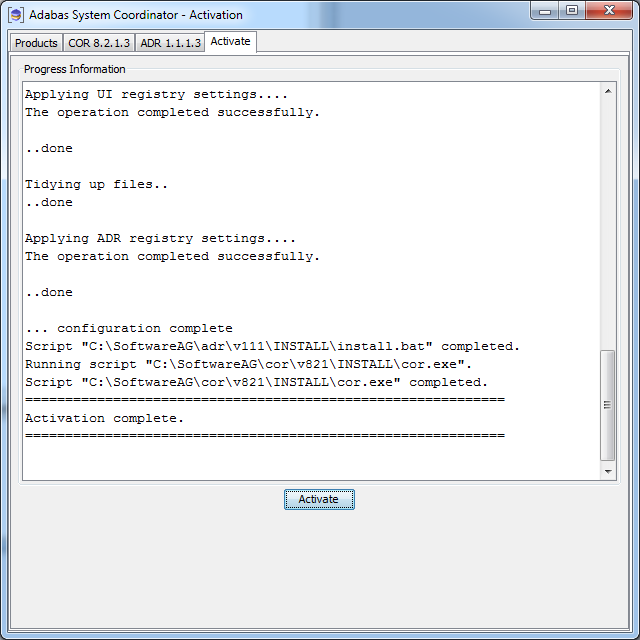
The activation detects when a GUI is unavailable and will use the console mode automatically as follows:
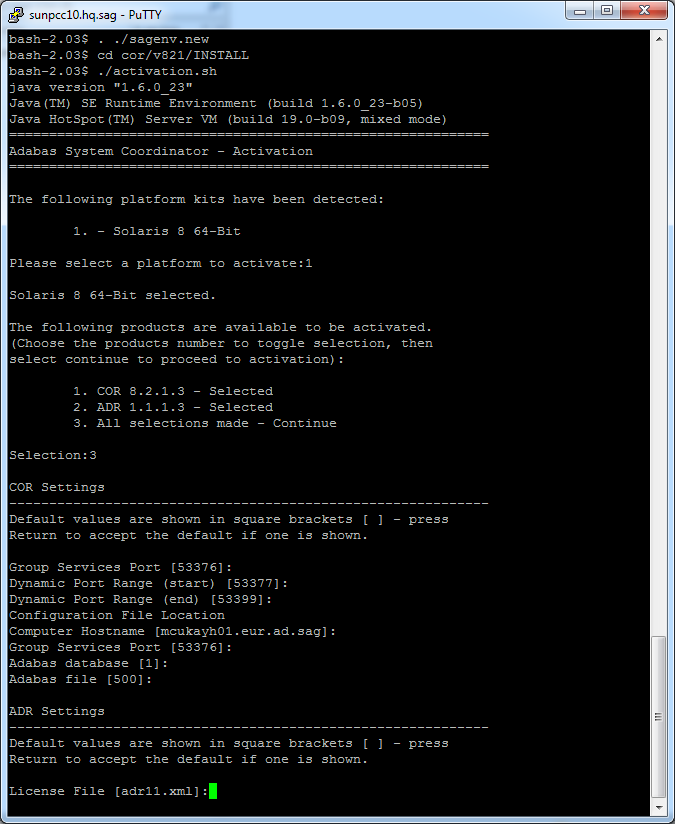
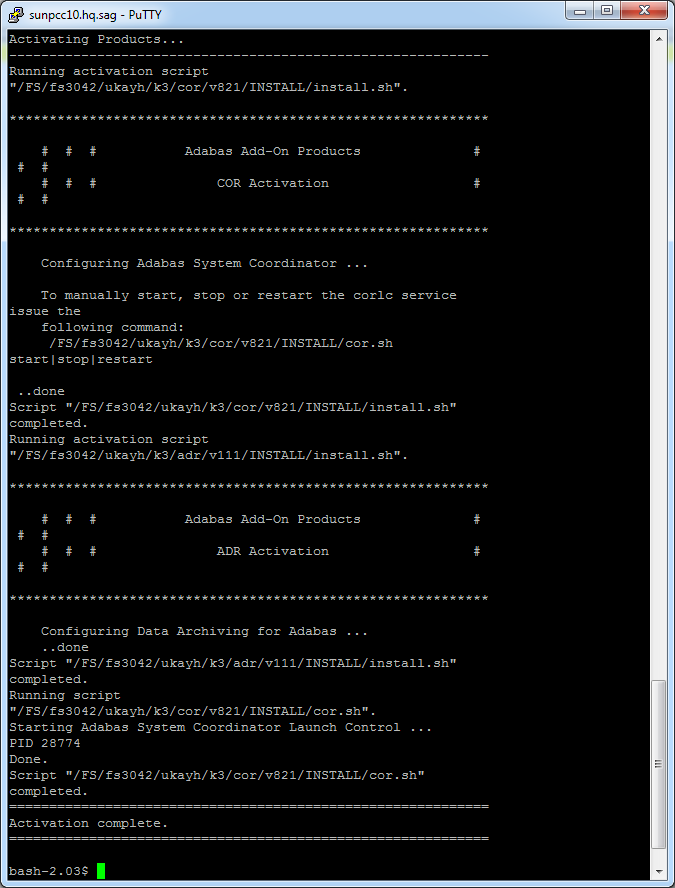
![]() To use the software
To use the software
Go to your browser and use http://localhost:49981/smh (assuming defaults have been used for SMH) or use you normal entry to SMH.
Select the main node.
Within the tree you should select the node. You should see the archive service for the runtime in the computer you have just installed. This should show a green traffic light which indicates that the service is active.
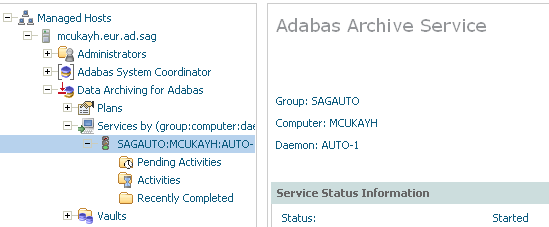
The installation is now complete. You can begin using Data Archiving for Adabas. See the section Getting Started for further information.